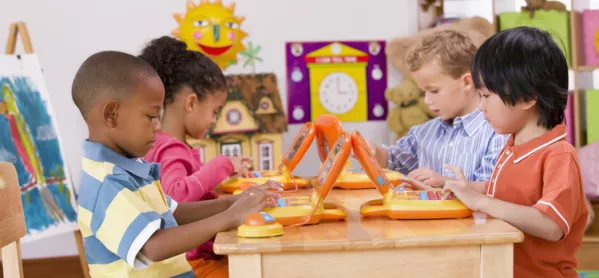Primary class sizes should be kept to 30 or less, according to Labour party leader Jeremy Corbyn.
“We need a guarantee of class sizes of 30 or less in primary schools,” he said. “There are a considerable number that are over 30, 31, some that are even bigger than that - up to 38, and that is completely wrong.”
Mr Corbyn said reducing class sizes would result in schools having to increase staff numbers.“Therefore, we need more teachers; above all, we need to retain more teachers,” he said. “Sadly too many leave the profession very early because they are over-burdened by workloads and pressure on them.”
The Labour leader’s call comes as part of his plan for what he has termed a “National Education Service”. The class-size guarantee would go further than the policy of the last Labour government and could prove popular with teachers, but it appears to go against research findings.
A legal limit of 30 on infant classes, for children aged 7 and under, was introduced by the Labour government in 1998, but it does not currently apply to classes for older children.
And schools may still legally have more than 30 children in infant classes under certain circumstances, and these circumstances have been extended in recent years.
The Labour party claimed earlier this year that more than half a million primary children were being taught in supersize classes, as numbers of primary-aged children continue to rise.
The exisiting limit was imposed on infant classes following Ofsted research in 1995 which found that, weighing up the cost and benefits of reducing class sizes, it could only be justified for younger children.
‘Costs outweigh benefits’
And there is little research evidence to show that the cost of limiting class sizes for older children would be justified. The Education Endowment Foundation says that reducing class sizes has “moderate impact for very high cost”. It adds that there are not particularly large or clear effects until the class size is reduced to under 20.
But it would be a popular policy with teachers, who, given the choice, are more likely to say they would have smaller classes than a pay rise, according to TES Global research published in May.
Mr Corbyn has said that he wants to see a National Education Service, based on the principles of the NHS, which would help people “from cradle to grave” if he becomes prime minister.
The service would address his concerns about insufficient access to pre-school education and a lack of adult education, and would form a key plank of his programme for government, subject to the approval of the Labour party conference.
As part of the plans, Mr Corbyn will scrap university tuition fees and guarantee adults a set number of hours per week which they could use for education or training.
“The National Education Service will put good education at the centre of our society - opening up opportunities to everyone,” he said.
“It will mean that children get a good start in life and for the rest of their lives will have their horizons opened, and will not be restricted in their choices by the education they can afford, rather than the education they have a passion for.”
Asked in an Observer interview how he would fund the plans, Mr Corbyn replied: “It is expensive. We fund it through corporate taxation levels. By not reducing taxation and by chasing down tax avoidance and tax evasion.
“It’s costing us a lot of money not to have a higher level of higher education. If we invest in it we will benefit from it,” he added.
Want to keep up with the latest education news and opinion? Follow TES on Twitter and like TES on Facebook




